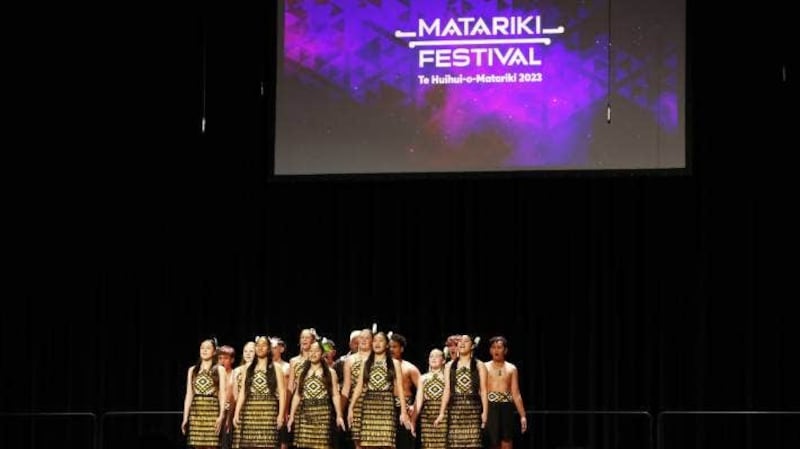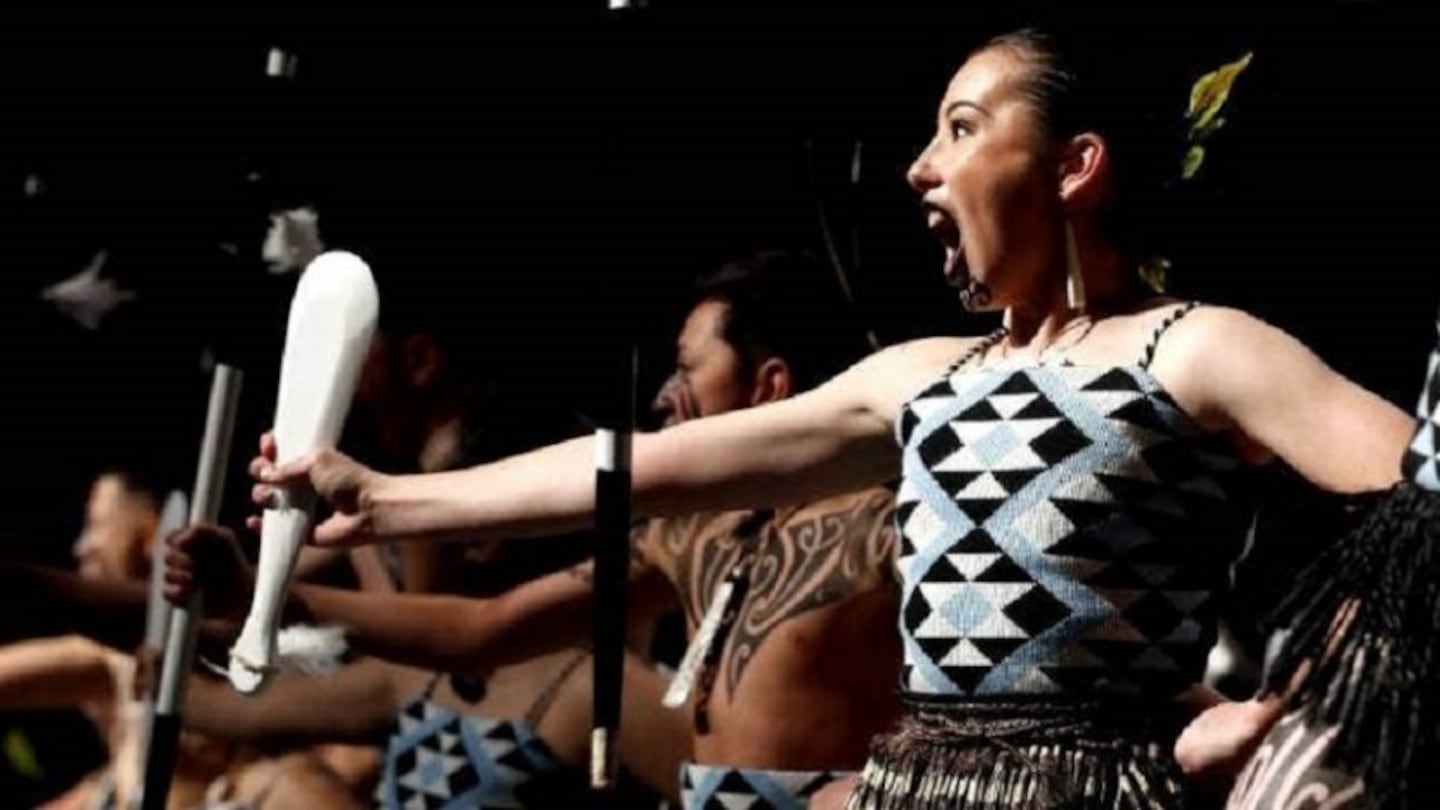The winning combined Nelson colleges kapa haka group Nga Aho Rau perform at the Trafalgar Centre. Martin De Ruyter / Stuff
By Warren Gamble, Stuff
A combined Nelson colleges team won the regional secondary schools kapa haka competition to qualify for the national event next year in Nelson.
The Taku Kara Tipuna competition was held in a packed out Trafalgar Centre on Friday, with queues waiting to enter the 1000-seat theatre.
Six secondary school kapa haka groups from Te Tauihu took part – the combined boys and girls colleges teams from Nelson and Marlborough, and groups from Motueka High School, Nayland College, Tapawera Area School and Te Kura Kaupapa Māori o Tuia te Matangi in Richmond.
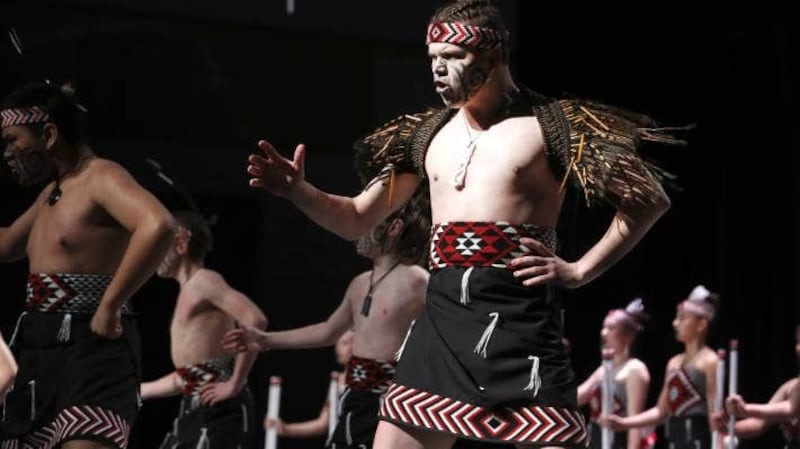
Ngā Taiohi o Wairau from Marlborough Boy’s College and Marlborough Girl’s College. Photo / Nelson Mail
Wayne Hippolite, chair of Te Herenga Tahi (top of the south secondary school Māori teachers and teachers of te reo Māori) said the standard of kapa haka performance and its popularity were growing in the region.
“There were a lot of happy performers and parents out there,” he said.
Runners-up to the combined Nga Aho Rau group from Nelson College and Nelson College for Girls were Kura Kaupapa Māori o Tuia te Matangi with Nayland College’s Pūaha Te Tai in third place.
The regional competition was a dress rehearsal for the national event being held in Nelson for the first time next year.
The city is also hosting the primary school kapa haka nationals in October and November this year, and will host the country’s premeier kapa haka festival, Te Matatini, in 2027.
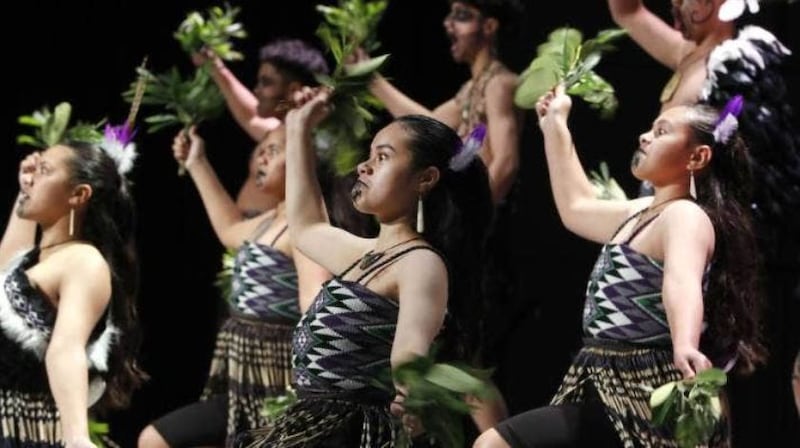
Te Kura Kaupapa Māori o Tuia Te Matangi took out second place at the regional competition. Photo / Nelson Mail
Hippolite said Te Tauihu had a relatively small Māori population, but kapa haka was building its skill base across the region.
Many non-Māori were involved in the Māori performing art, including three in the winning Nelson colleges team.
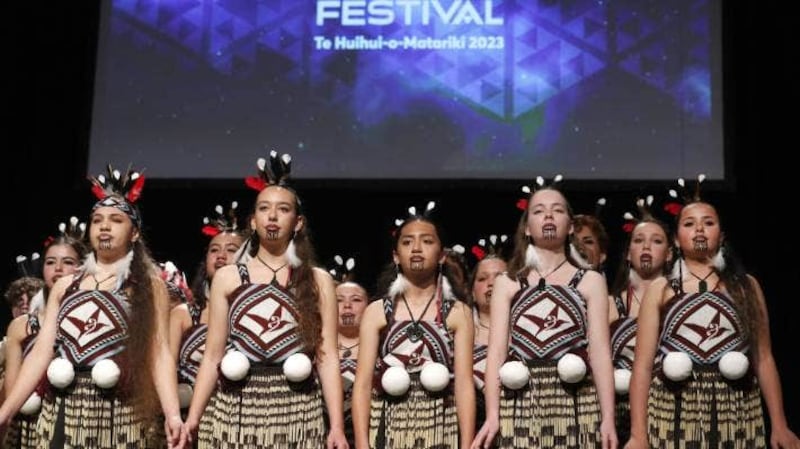
Pūaha Te Tai from Nayland College who finished third. Photo / Nelson Mail
“The door is always open to anybody,” he said. “It’s a lot to do with whakawhanaungatanga (establishing relationships), finding that connection somewhere, even if it’s not your own culture.”
A kapa haka tutor himself, Hippolite said the groups put in scores of hours practising for their 25-minute performance on stage.
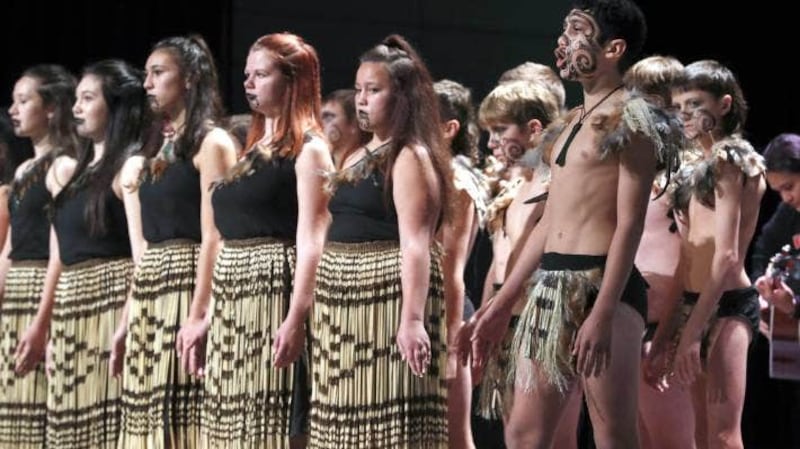
Te Mana Ahikā o Tapawera from Tapawera Area School. Photo / Nelson Mail
The six compulsory parts of the performance are the entry, traditional chant, action song, poi, haka and exit, with an optional choral element.
